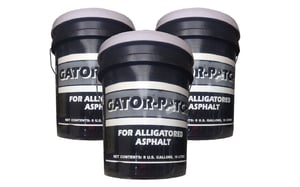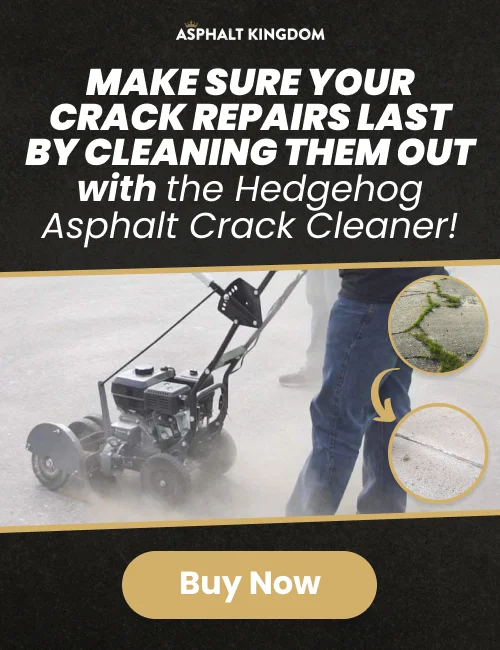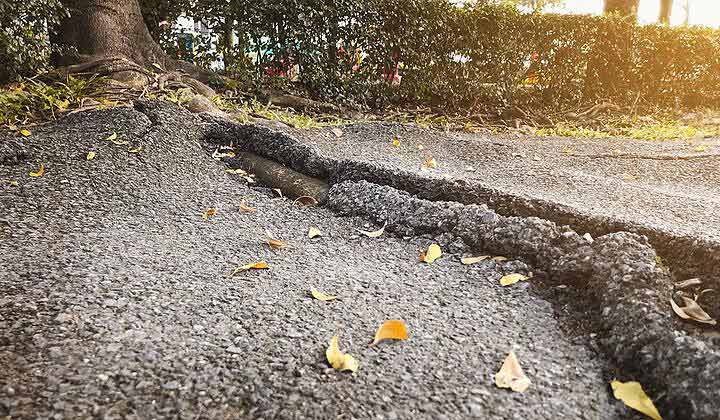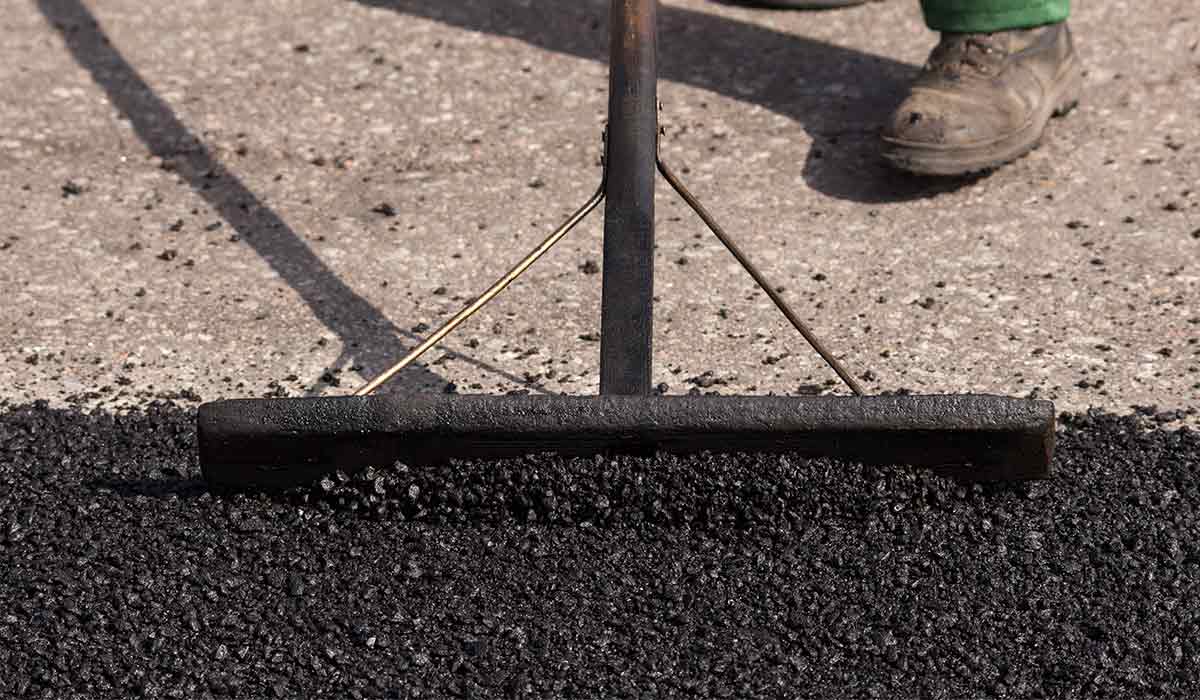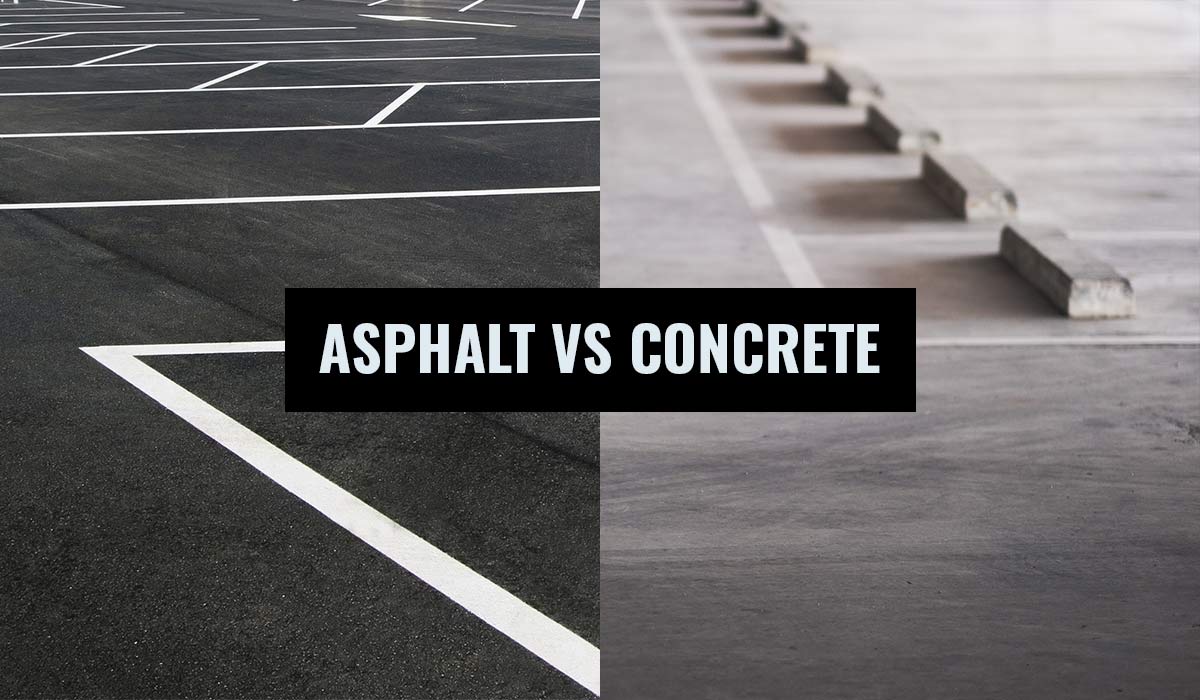Found alligator cracks in your asphalt?
Luckily, this type of asphalt damage is easy to fix. Learn how you can repair an alligatored driveway or parking lot with just a bucket of Gator Patch and some tools that you probably already have in your shed.
In this blog, we'll also give you tips on when's the best time to apply the product and whether it can still be repaired...or if it's time to give up.
1. Alligator cracking is one of the most common types of damage you see in asphalt
You've definitely seen them before on your own or on other people's asphalt. Extensive cracks on a driveway or parking lot that resemble the skin of an alligator or a crocodile.
Yes, alligator cracking (also known as crocodile cracking) is one of the most common types of damage you will find in asphalt. You can find it on driveways, parking lots, and even public roads. The overall size of alligator cracking can range anywhere between a couple of feet to a few meters.
Commercial properties with high traffic such as hospitals and hotels are also prone to alligator cracking. Read on to learn how you can fix alligator cracks in just a few easy steps.
2. Excessive load is just one of the causes of alligator cracking
One of the main reasons why asphalt pavements break down and become alligatored is overloading. It may be from parking an extremely heavy vehicle on thinner asphalt pavements or the stress from frequent traffic.
But excess load is just one of the causes of alligator cracking.
A poorly constructed pavement is more prone to alligatoring, and inadequate drainage can also hasten its deterioration.
Moisture is asphalt's enemy number one. When a crack appears in asphalt, moisture seeps into its base layer. Once neglected, this causes the asphalt to unravel gradually and results in alligator cracking.
Related: How to Fill a Pothole in 4 Steps
3. It's costly to neglect alligator cracks
Unfortunately, alligator cracks don't stay as alligator cracks forever. When neglected for a long time, rainwater and snowmelt can seep into the base layer and further soften the foundation.
Neglecting to address this problem can result in more problems, including larger cracks and potholes. And these asphalt damages are more expensive to repair.
For example, you need to pay an asphalt maintenance contractor anywhere between $1 and $1.50 per sq ft to fill larger cracks with hot rubberized crack filler. Pothole patching, on the other hand, starts at $25 per sq ft. Now imagine that your asphalt is riddled with longer and larger cracks and multiple potholes just because you failed to have those alligator cracks fixed.
But if you fix alligatored asphalt on your own, you will spend less than $150 per bucket of Gator Patch which will allow you to save thousands in the future. And you don't even need to use up the entire bucket if you're repairing a small area of your driveway or parking lot.
But the overall cost savings is not the only benefit property owners can get from fixing alligatored asphalt.
Let's say you're a business owner and you neglected to have those cracks fixed promptly and they have become larger fissures or potholes. Maybe you're busy, or you've been putting the repairs off because you have to focus on other expenses.
The problem is there's a high chance that one of your customers will trip on one of those cracks and injure themselves. Or drive over a pothole and damage their cars.
Injuries and damages to property due to neglect can be costly, and the last thing you want is to be involved in a lawsuit just because you neglected to have something as simple as to have that alligatored asphalt fixed.
4. Fixing alligator cracks is so easy
Did you notice some cracks on your parking lot and are you wondering how to fix alligatoring in asphalt? Here are the steps to repair that.
What You Need:
- A bucket (or buckets) of Gator Patch Asphalt Repair
Tools:
How to Fix Alligatoring in Asphalt
Step 1. Get rid of grass, leaves, rocks, and loose asphalt from the alligatored surface using a 16" Wire Street Broom. Found weeds between the cracks? Just pull them out or use the broom to remove them. Make sure the entire surface is completely clean by using a backpack blower.
Step 2. Pour a moderate amount of Gator Patch Asphalt Repair on the alligatored area. Using your straight blade squeegee, spread Gator Patch evenly all over the cracked area. Do not overwork Gator Patch to prevent the surface from becoming rough and ugly.
Step 3. Remove any excess product from the repaired area and wait for it to dry.
Step 4. Apply the second coat. Protect your handiwork from traffic by setting up traffic cones around the repaired area. Tie them together with attention ribbons.
For a full demonstration of how to fix alligatoring in asphalt, simply watch the video below.
Video: How to fix alligator cracks on asphalt surfaces
5. You can still seal the surface after applying Gator Patch
If you're wondering if you can seal the repaired surface, then the answer is yes! Just make sure to let the asphalt dry and set for 48 hours or more before sealing it.
Related: Asphalt vs Concrete: What's the Best Driveway Material?
6. You don't need to pressure wash the cracks to clean it
At this point, you're probably wondering whether it's a good idea to pressure wash the alligatored area or not before repair.
The answer no, is we do not recommend pressure washing or even just hosing down the alligatored area before applying Gator Patch as moisture can interfere with the product's adhesion and overall quality.
Sweeping away dirt, leaves, and gravel using a wire street broom and following it up with a backpack blower is enough. Also, make sure to remove any weeds growing between the cracks.
7. The perfect time to repair alligatored asphalt is in the summer
Gator Patch is a product that loves a dry surface, so it's essential to conduct repairs when the conditions are optimal.
You can apply Gator Patch in the spring and fall, but watch out for rain! Don't apply Gator Patch a few hours after it has rained. You should also refrain from applying this product if rain is in the forecast for the day.
Related: 8 In-Demand Home Service Business Ideas To Try This Year
8. Know when it's time to throw in the towel
The good thing about alligatoring is that it is usually the first sign of asphalt damage and it can still be remedied.
But if the damage you see on your asphalt is so extensive that gravel are coming loose and the area is already pocked with potholes, is it still sensible to have it repaired and should you still fill the asphalt cracks?
If this is the case, then it's definitely time to skip the repair part and have your driveway or parking lot repaved entirely.
Conclusion:
Ready to fix your alligatored asphalt and looking for Gator Patch and asphalt maintenance tools? Simply shop at the Asphalt Kingdom supplies store to get started!


